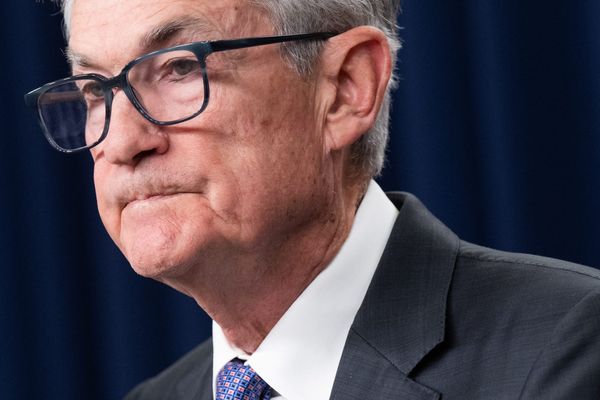In her first address to parliament, French Prime Minister Élisabeth Borne said the country must prepare for Russian gas cuts. She also told MPs that French politicians have forgotten the virtue of compromise and that they “must give the word its meaning back” after President Emmanuel Macron’s centrist bloc lost its majority in June’s legislative elections.
Amid vociferous opposition to her right and left, Borne warned other parties that “disorder and instability aren’t options”.
As the head of a minority government, Borne said that – in giving France a hung parliament in last month’s polls – the French people were asking the country’s politicians to “do things differently”. The prime minister said the government she and Macron lead is “responding to that demand”.
The PM is engaging in one of French politics’ most important rituals, the "general political declaration" that kicks off the parliamentary session, which is being scrutinised closely given her weak position at the head of a minority government.
When it came to setting out the government’s priorities for Macron’s second term, the headline announcement was that France will completely nationalise its debt-laden energy utility EDF, of which the state already owns 84 percent.
“We must have full control over our electricity production and performance,” Borne said in her first major speech to France’s parliament. “We must ensure our sovereignty in the face to the consequences of the war (in Ukraine) and the colossal challenges to come. […] That’s why I confirm to you the state’s intention to own 100% of EDF’s capital.”
EDF manages France's big fleet of nuclear reactors, which are facing an array of technical problems.
Otherwise Borne adopted her boss’s famous en même temps (“at the same time”) approach. She promised “radical” action on the transition to a green economy – a big priority for the left. But she also poured cold water on “de-growth”, a cherished idea among many French leftists.
The PM said full employment was “within reach”, but also said that France must move government spending “towards a balanced state” after public debt ballooned during the coronavirus crisis.
Borne also said that Macron’s contentious plans to raise the retirement age from 62 to 64 are “not set in stone” but nevertheless “necessary”.
The far-right National Rally’s Marine Le Pen reacted to Borne’s speech by saying it is “incongruous” that the PM is still in post after Macron’s bloc lost its majority. Le Pen said it is the “government’s job to decide whether it will be gridlock or whether institutions will work as they should”.
‘Too risky’
Macron suffered a setback in parliamentary elections last month that saw his allies fall short of a majority by 39 seats.
He and Borne have since failed to tempt opposition parties into a coalition.
"The prime minister is working round the clock," a cabinet minister told AFP this week. "She's meeting everyone, she's calling everyone. She's really committed to listening, so we'll manage."
Without formal allies in the 577-seat national assembly, Borne has decided not to call a confidence vote on her policy speech – something almost all past prime ministers have done after their first appearances in the lower house.
Holding a vote was "too risky" for Borne, who would have been forced to step down if she lost, explained Bruno Cautres, a researcher at the Cevipof political studies unit at Sciences Po university in Paris.
"She made the right decision, but she didn't really have a choice."
But the hard-left France Unbowed (LFI) party, one of the big gainers in June's parliamentary polls, called a censure motion on Wednesday which would also bring Borne down if she loses.
Analysts see it as highly unlikely to pass, with other opposition parties from the far-right National Rally and the rightwing Republicans ruling out backing LFI.
Exhausted?
Borne's immediate priorities are expected to be pushing through laws with wide support such as one to help low-income families cope with the cost-of-living crisis and another to release extra funding for the struggling health service.
Interior Minister Gérald Darmanin was hopeful the government could count on support from the right-wing Republicans party for bills to tackle immigration and crime, saying the cabinet's "hand was outstretched".
"If we put forward bills filled with common sense and with the spirit of compromise we have today, will this outstretched hand be taken by our adversaries?" he told BFM television.
"Nobody would understand" if opposition parties systematically blocked the government, he said.
Without a formal coalition, intense negotiations with opposition parties will be required each time the government wants to pass legislation.
Borne will also be constantly vulnerable to a censure motion called by opponents, making French politics unpredictable and unstable for the foreseeable future.
Only two months since he was re-elected to a historic second term, Macron has diminished capacity to push through reforms, with plans to raise the retirement age to 65 and reform welfare on ice for the moment.
The French media has speculated in recent days about his state of mind, with some reports suggesting he is yet to mentally rebound from the parliamentary setback.
Le Point, a right-wing weekly, said he had lost his "energy, his nerve and his lucidity", while the left-wing l'Obs reported he was suffering from "physical exhaustion".
Rumours that Macron is burned out have frequently surfaced during his five years in office, fed by reports that he survives on a few hours' sleep a night and often texts ministers in the early hours of the morning.
A cabinet reshuffle announced on Tuesday did little to inject new momentum into his government as he failed to attract any new heavy-hitters.
It kept most senior figures in their jobs and brought in only junior new faces with little political experience.
"Emmanuel Macron is no longer attractive," senior rightwing Republicans figure Bruno Retailleau told the CNews channel on Tuesday.
(FRANCE 24 with AFP)







